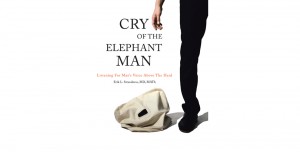We have become pretty innovative engineering the beginning of life but seem quite helpless when it comes to stopping death. Unable to prevent the inevitable, we instead defiantly make sure we die on our own terms. We feel that since we have constructed some creative life on-ramps, we should also be able to exit life’s highway before we come to the end of the road. We then take things into our own hands, mug the Grim Reaper, grab his sickle, and announce that we are now in control. Mr. Reaper, a bit startled, shuffles back to Gehenna for a smoke and mumbles, “that was easy.”
As a doctor, I am very uncomfortable with physician assisted-suicide. Those who defend it redefine it as death with dignity, but what does it mean to die with dignity anyway? Death certainly doesn’t care whether you die dignified or despairing because either way it gets the last word. It appears that this catch phrase is only important to the living and boils down to an obsession with looking as life-like as possible before we die. While it may seem noble to avoid becoming a burden to others, or sparing friends and family from seeing us at our most physically frail, aren’t we really just indulging the last vestiges of our human vanity? We may want to rewrite the rules of death, but in the end, our clever wording will be nothing more than a poetic act of acquiescence.
When we view life as a ledger sheet, the bottom line becomes the tenuous balance between pleasure and pain. Our culture then becomes a Quality (of Life) Assurance Department that raises a red flag every time somebody’s accounts payable column overflows with suffering. Sadly, secular accounting practices are incapable of balancing the books and their only option is to recommend the client file for life bankruptcy. The Good News is that the accounting firm of God and Son is licensed in Afterlife Annuities and has been transforming suffering into gain for more than two thousand years. In fact, with every deposit of faith they guarantee a secure treasure in heaven that pays eternal dividends.
Jesus’ death on the cross was an atoning sacrifice for our sins, but it was not the quick, relatively painless death of a sacrificial animal. Jesus’ death was accompanied by hefty doses of pain and anguish, which means that His suffering must be just as important as His death for our salvation. And while this may make some of us uncomfortable, we have had martyrs from every generation that have considered “sharing in His suffering and death” as a way to share in His eternal life. We should never trivialize the suffering of our fellow humans and must make every effort to comfort them as they approach the end of their lives, but helping them build a bypass over the via dolorosa may prevent them from viewing some of the redemptive sights along the way.
You may want to be a rebel and give Death “the finger” by ending life on your own terms but all you will have done is give the Grim Reaper the day off. If you really want to be a death dissident you need to join the Jesus Resurrection Rebellion and defiantly chant with the great cloud of witnesses, “O death where is your victory? O death, where is your sting?”
But whatever gain I had, I counted as loss for the sake of Christ. Indeed, I count everything as loss because of the surpassing worth of knowing Christ Jesus my Lord. For his sake I have suffered the loss of all things and count them as rubbish, in order that I may gain Christ and be found in him, not having a righteousness of my own that comes from the law, but that which comes through faith in Christ, the righteousness from God that depends on faith— that I may know him and the power of his resurrection, and may share his sufferings, becoming like him in his death, that by any means possible I may attain the resurrection from the dead. (Philippians 3: 7-11)
Check out my new book: Cry Of The Elephant Man: Listening For Man’s Voice Above The Herd
Social Media
Recent Posts
Archives
- October 2024
- September 2023
- July 2023
- June 2020
- May 2020
- April 2020
- March 2020
- February 2020
- January 2020
- December 2019
- November 2019
- October 2019
- September 2019
- August 2019
- July 2019
- June 2019
- May 2019
- April 2019
- March 2019
- February 2019
- January 2019
- December 2018
- November 2018
- October 2018
- September 2018
- August 2018
- July 2018
- June 2018
- May 2018
- April 2018
- March 2018
- February 2018
- January 2018
- December 2017
- October 2017
- September 2017
- August 2017
- July 2017
- June 2017
- May 2017
- April 2017
- March 2017
- February 2017
- January 2017
- December 2016
- November 2016
- October 2016
- September 2016
- August 2016
- July 2016
- June 2016
- May 2016
- April 2016
- March 2016
- February 2016
- January 2016
- December 2015
- November 2015
- October 2015
- September 2015
- August 2015
- July 2015
- June 2015
- May 2015
- April 2015
- March 2015
- February 2015
- January 2015
- December 2014
- November 2014
- October 2014
- September 2014
- August 2014
- July 2014
- June 2014
- March 2014








One Response to Final Act Of Defiance